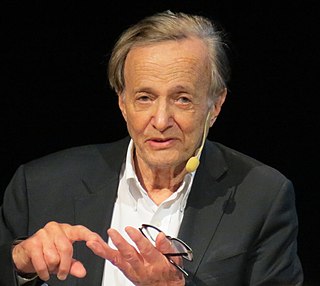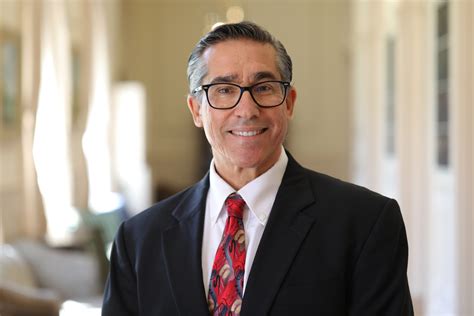A Quote by Nick Kroll
Contrary to widespread belief, I do know something about science.
Related Quotes
The necessary precondition for the birth of science as we know it is, it would seem, the diffusion through society of the belief that the universe is both rational and contingent. Such a belief is the presupposition of modern science and cannot by any conceivable argument be a product of science. One has to ask: Upon what is this belief founded?
Science has long been in the value business. Despite a widespread belief to the contrary, scientific validity is not the result of scientists abstaining from making value judgments; rather, scientific validity is the result of scientists making their best efforts to value principles of reasoning that link their beliefs to reality, through reliable chains of evidence and argument.
Belief is in ignorance. If you know, you know. And it is good that if you don’t know, know that you don’t know — the belief can deceive you. The belief can create an atmosphere in your mind, where, without knowing, you start thinking that you know. Belief is not trust, and the more strongly you say that you believe totally, the more you are afraid of the doubt within you.
It is always a great honour to mention a truth which has not become widespread yet. One of these truths is that man has no soul; he has only 'body' and 'mind'. Man's unshakable belief on the soul will not change this scientific truth! No belief can be higher than the scientific truths! Man can be born, can walk and work and can think without owning a mysterious and an immaterial soul! The soullessness of the man is a great tragedy both for the man and for the religion. But Man, contrary to the religion, will come out with triumph from this tragedy.
Every attempt to employ mathematical methods in the study of chemical questions must be considered profoundly irrational and contrary to the spirit of chemistry.... if mathematical analysis should ever hold a prominent place in chemistry -- an aberration which is happily almost impossible -- it would occasion a rapid and widespread degeneration of that science.
No true geologist holds by the development hypothesis;-it has been resigned to sciolists and smatterers;-and there is but one other alternative. They began to be, through the miracle of creation. From the evidence furnished by these rocks we are shut down either to belief in miracle, or to something else infinitely harder of reception, and as thoroughly unsupported by testimony as it is contrary to experience. Hume is at length answered by the severe truths of the stony science.
Liberalism, contrary to popular belief, is facing backward in considering the injustice of its ancestors. Conservatism, contrary to popular belief, is facing forward in considering the psychology of its descendants. Definitively, it seems in the modern world that neither side really knows which direction it's facing, and men of the sharpest judgment are simply turned off from picking either of the poisons.
Religion and science have nothing to do with each other, they're about different things, science is about the way the world works and religion is about [...] miracles. [...] And in any case, if you ask most ordinary people in church or in a mosque why they believe, it's almost certainly got something to do with the belief that God does wonderful things, that God intervenes, that God heals the sick, that God answers prayers, God forgives sins.
We are more gullible and superstitious today than we were in the Middle Ages, and an example of modern credulity is the widespread belief that the Earth is round. The average man can advance not a single reason for thinking that the Earth is round. He merely swallows this theory because there is something about it that appeals to the twentieth century mentality.
So much confusion about belief in God, morality, and science arises, not from what people say they believe, but rather from mistaken assumptions about God, morality, and science that they don't know they believe. In Three Theological Mistakes, Ric Machuga, with clarity and grace, explains the genesis of these mistakes and provides the intellectual tools by which we can recover from them.
The fact of evolution is the backbone of biology, and biology is thus in the peculiar position of being a science founded on an unproved theory -is it then a science or a faith? Belief in the theory of evolution is thus exactly parallel to belief in special creation - both are concepts which believers know to be true but neither, up to the present, has been capable of proof.



































